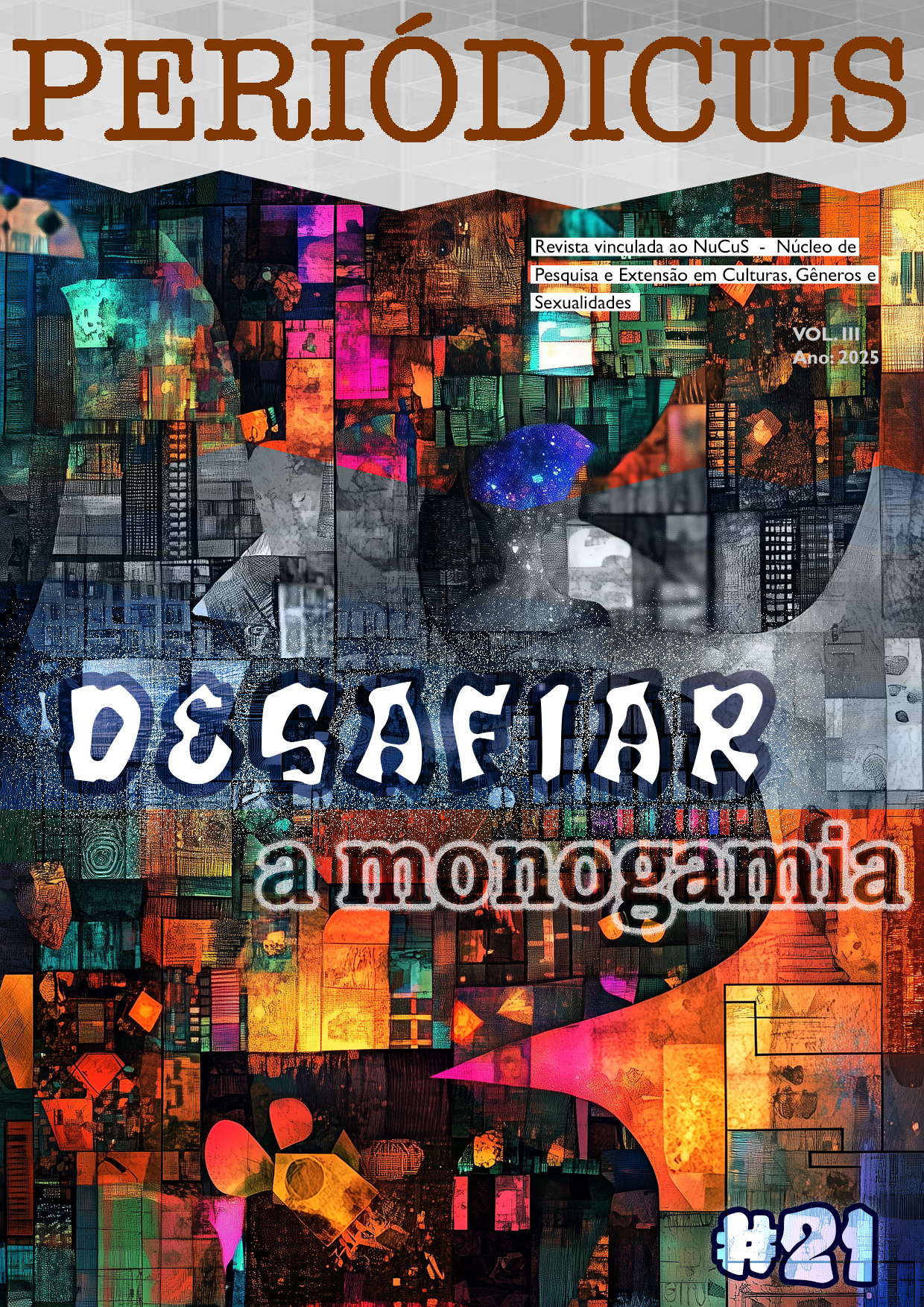Cruising; nicknames and taps
the influence of the internet on Chilean homoerotic sexuality
DOI:
https://doi.org/10.9771/peri.v3i21.56697Abstract
The historical relationship between the Chilean LGBTQ+ population and police and social persecution is undeniable. The violence with which heteronormativity has been imposed historically has resulted in the clandestinity of sexual encounters between people of the same sex. And it is because of this context that Cruising emerged, which is the practice of sexual relations between men in public places, generally from anonymity. Today, in times of a more open and safe society for the LGBTQ+ population, this practice is still popular, so through this article a historical narration of the Cruising in Santiago de Chile will be constructed, with a special focus on the influence of the internet on this practice, and how these changes affected the relationships of men who have sex with men.
Downloads
Downloads
Published
How to Cite
Issue
Section
License
Copyright (c) 2025 Tomás Estefó C.

This work is licensed under a Creative Commons Attribution-NonCommercial 4.0 International License.
Authors who publish in this journal agree to the following terms:
Authors retain copyright and grant the journal the right of first publication, with the work simultaneously licensed under a Creative Commons Attribution Noncommercial License that allows the work to be shared with acknowledgment of authorship and initial publication in this journal, but prohibits commercial use.
Authors are authorized to enter into separate additional contracts for non-exclusive distribution of the version of the work published in this journal (e.g., publishing in an institutional repository or as a book chapter), with acknowledgment of authorship and initial publication in this journal.
Authors are permitted and encouraged to publish and distribute their work online (e.g., in institutional repositories or on their personal website) at any point before or during the editorial process, as this can generate productive changes and increase the impact and citation of the published work (see The Effect of Open Access).








